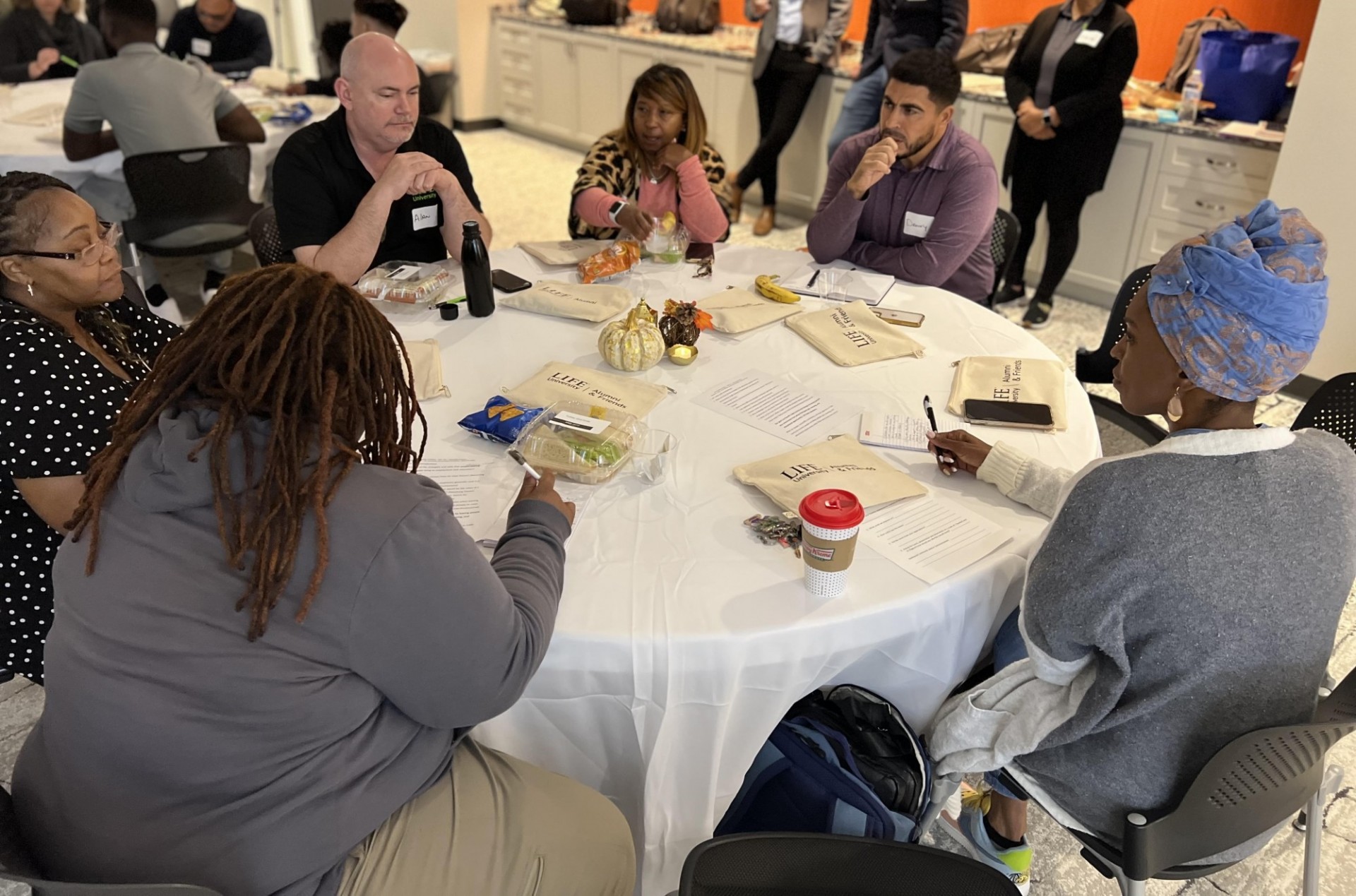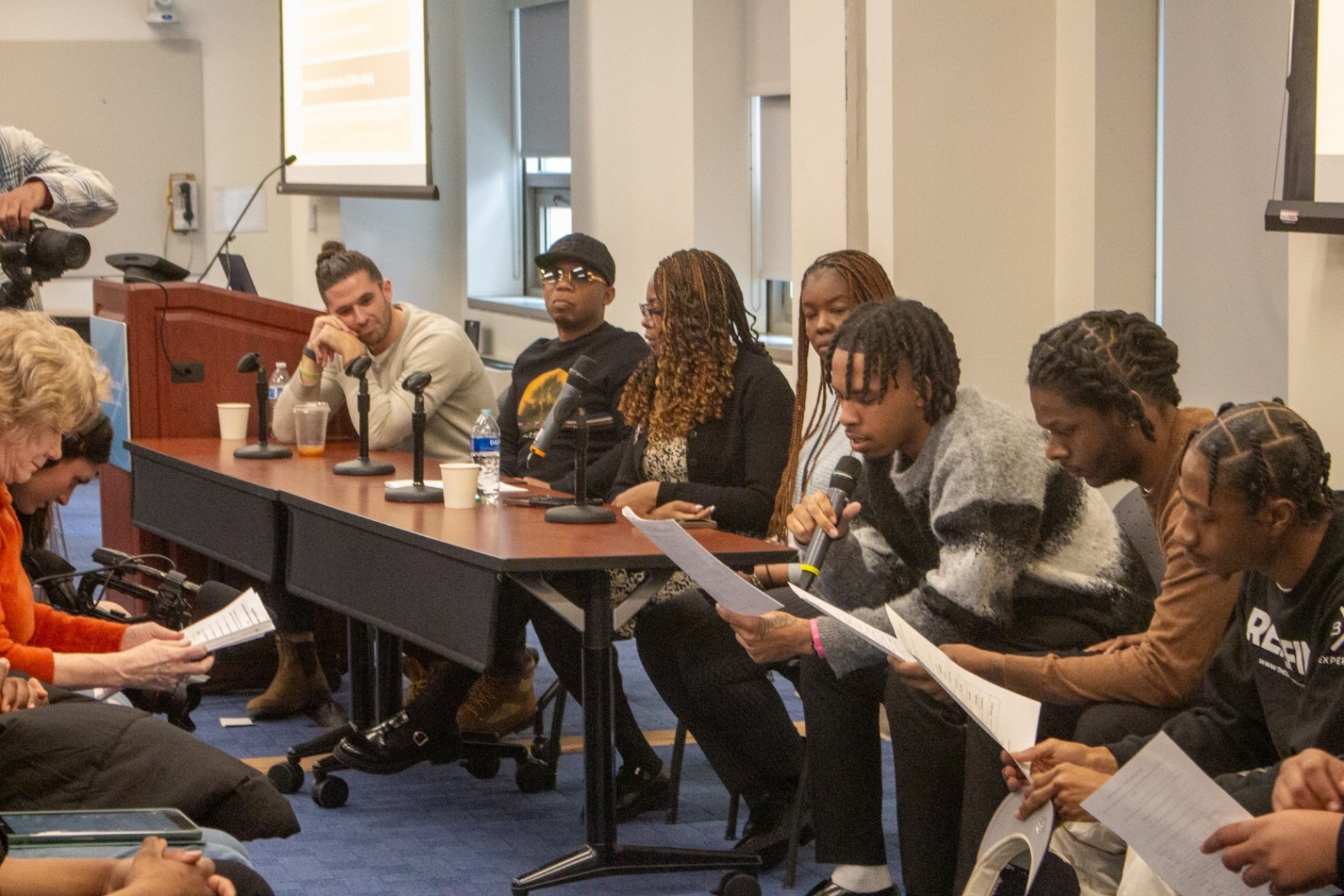Image Carousel with 4 slides
A carousel is a rotating set of images. Use the previous and next buttons to change the displayed slide
-
Slide 1: A man sitting at a laptop with headphones on
-
Slide 2: a group of people sitting around a table
-
Slide 3: A group of youth sitting on a panel speaking
-
Slide 4: A panel of women at the Beyond the Bars Conference




Although the United States comprises only five percent of the world’s population, we have more than twenty-five percent of the world’s prisoners. Statistical evidence overwhelmingly confirms that a college education reduces recidivism, increases employment opportunities, and strengthens communities.
According to the Justice Atlas of Sentencing and Corrections, more than 50% of all incarcerated Manhattanites call Harlem home, which means Columbia University sits in a unique position to confront the mass incarceration crisis through education.
Emphasis on education has been central to our work. Our initiatives provide college-level courses in prison and for people returning home, as well as arts and media training for youth at Rikers Island and in communities impacted by incarceration. CfJ is recognized as both the hub and catalyst for collaborations throughout the community of currently and formerly incarcerated people, and the local and national community committed to justice. Our unique model of university-community collaboration is already being replicated.
Our Collaborative Education projects include:
Beyond the Bars Conference
The Beyond the Bars Conference is an annual student-driven interdisciplinary conference on mass incarceration held at Columbia University. Each year the conference brings together students, faculty, activists, advocates, practitioners, those who have experienced and/or been impacted by incarceration, community members and more to connect, galvanize, and deepen the work of building justice and equity and ending mass incarceration.
Learn more about the Beyond the Bars Conference
Justice in Education Initiative
The Justice-in-Education Initiative is dedicated to bringing credit-bearing college courses, workshops, and creative projects to campus, local prisons, and at the Rikers Island jail complex. Our programs open channels of communication and collaboration between Columbia faculty and students, communities affected by incarceration, and the public at large for a more just and socially conscious system of higher education.
Learn more about the Justice-In-Education Initiative
Justice Through Code
Justice Through Code is a free coding intensive that provides opportunities for formerly incarcerated individuals to begin to grow and develop into the technology leaders of tomorrow. Justice Through Code educates and nurtures talent with conviction histories to create a more just and diverse workforce.
Learn more about the Justice Through Code
The National Executive Council
The National Executive Council (NEC) at the Center for Justice is an entity of educators, researchers, and conflict resolution practitioners who support communities impacted by unhealthy outcomes correlated with the conditions of poverty.
Learn more about the National Executive Council
Research
The Center for Justice is at the forefront of criminal justice research, leading gatherings of faculty, research scientists and fellows, graduate students, and community partners in order to share and discuss work in the field of criminal justice. We recognize that alongside delivering important and impactful programming, we have a responsibility to also participate in leading-edge discussions and research that impact our work. We welcome participants from various disciplines and institutions to join us.
Part of our research is conducted out of Columbia University’s Psychology Department, particularly in the Social Relations Lab. Much of its work seeks to illuminate individual and structural pathways through which the stigma associated with carceral identity can adversely affect interpersonal functioning and well-being outcomes in high-stakes domains. One of the goals of this work is to inform the development of evidence-based interventions that can disrupt stigma in ways that enable flourishing during reentry.
Read our research
